an international
network

Seen and Heard is an international research and community project drawing on the work and experience of a network of universities, schools, cultural organisations and policy-making institutions across Europe.
Our core partnership comprises the University of Malta, Humboldt-Universität zu Berlin, University of Wrocław and Amnesty International, as well as the schools that were with us from the very start, namely Sir Adrian Dingli Pembroke Secondary School, St Clare College (Pembroke, Malta), Primary School No. 1. (Wrocław, Poland), Wedding-Schule (Berlin, Germany).
The Seen and Heard Network (SHN) is growing to include over 100 members across many countries. Our members are academics, activists, educators, artists, and policy makers working on various literary, artistic, cultural, social and political issues related to young people, human rights, and social movements in postmigrant societies.
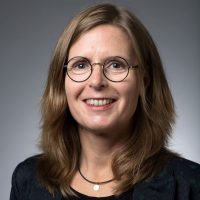
Prof. Nina Christensen
Aarhus University, Denmark
My research and teaching concern children’s and young people’s texts, media, their reading cultures, and concepts of childhood in contemporary and historical contexts.
Currently, I study depictions of the relationship between Greenland and Denmark and how Greenlandic identity is represented in picturebooks published for Danish children ca. 1930-1960, the years before and after the change of the Danish constitution in 1953 which formally ended Greenland’s status as a colony.
I am the head of the Center for Children’s Literature and Media, situated at the Department of Comparative Literature and Rhetoric at the School of Communication and Culture. I teach at the Master’s in Children’s Literature and Media (in Danish) and the international master’s degree Erasmus Mundus Children’s Literature, Media and Cultural Entrepreneurship. I supervise MA students writing their dissertations within these MA programs, as well as students from Literary History and Nordic Language and Literature, for instance. Currently, I supervise PhD projects on racism in Danish classics for children, on Russian picturebooks, fantasy in a queer perspective, among others (Frederikke Holkggard Buhl, Ekaterina Shatalova, Rikke Carlsen).
For years, I have been co-editor of the international book series Children’s Literature Culture and Cognition, and I am an advisory board member of the scholarly journals International Research in Children’s Literature and Barnboken. Finally, I am vice-chairman of the board of The Cross Media School for Children’s Fiction, which offers a fully funded, full-time education in writing for children across media.
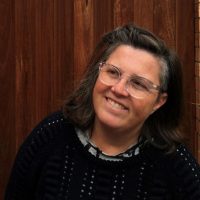
Ass. Prof. Katherine Coleman
University of Melbourne, Australia
Dr Kate Coleman is Associate Professor of Visual Arts & Design Education at the University of Melbourne. A neurodivergent feminist, artist, and researcher, she works across art, pedagogy, and justice.
Her practice-research weaves a/r/tography, speculative design, digital methods, and climate futures to open new possibilities of knowing and being.
Kate’s research lies in the entanglement of creativity, data, and place. She investigates how artists, educators, and young people make meaning across physical and digital sites. Central are questions of identity, methodology, and transformation — how creative artifacts, immersive data, and speculative inquiry can generate more just and livable futures.
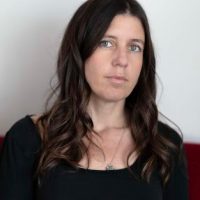
Dr Macarena Garcia Gonzalez
Pompeu Fabra University, Spain
Macarena García-González is a journalist and holds a degree in Social Communication from the Pontifical Catholic University of Chile (2003), a master’s in Cultural Studies from Maastricht University, the Netherlands (2010), and a PhD in Social Anthropology and Cultural Studies from the University of Zurich, Switzerland (2015).
She was a Marie Curie Researcher at the University of Glasgow, UK (2022-2024), and a principal and associate researcher at the Center for Advanced Studies in Educational Justice in Chile (2017-2022).
She has led the research projects Emotional and Literary Repertoires for Childhood (ANID-Fondecyt) and Challenging Homogeneity in Educational Spaces (ANID-CIE). Currently, she is a Ramón y Cajal Senior Researcher, working on a project about reading and literature in times of increasing digitalization.
She is the author of The Borders of Empathy in Children’s Fiction (Routledge, 2025), Enseñando a sentir. Repertorios éticos en la ficción infantil (Metales Pesados, 2021), and Origin Narratives: The Stories We Tell Children about Immigration and International Adoption (Routledge, 2017). Together with Óscar Contardo, she co-authored La era ochentera. Tevé, pop y under en dictadura (Ediciones B, 2005; Planeta, 2015). She has co-edited Children’s Cultures After Childhood with Justyna Deszcz-Tryhubczak (John Benjamins Publishing Company, 2023) and Campo en formación. Textos clave para la literatura infantil y juvenil with Evelyn Arizpe and Andrea Casals (Metales Pesados, 2023).
She has been a visiting professor at Universidad Iberoamericana in Mexico, the University of Wroclaw in Poland, and the University of Antwerp in Belgium. Additionally, she has taught in Switzerland, the United Kingdom, and Chile, and is an Honorary Senior Lecturer at the University of Glasgow. Currently, she coordinates the JOVIS research group, which focuses on youth, childhood, and communication, and is an associate editor of Children’s Literature in Education. She leads the CoREM (“Collective Remembrance: Engaging Youth Through Curatorial Practices”) project, funded by CERV-EU, with participation from the Museum of the History of Polish Jews in Warsaw, the History Museum of Bosnia and Herzegovina in Sarajevo, the Armenian Genocide Museum-Institute in Yerevan, the Museum of Contemporary Art of Barcelona (MACBA), the University of Wroclaw, and the Baptist University of Hong Kong.

Dr Blanka Grzegorczyk
Faculty of Education, University of Cambridge, UK
Blanka works at the intersections of literature, the arts, creative writing, education, philosophy, and politics.
She is especially interested in the politics of and creativities in writing for, by, and about the young, and in the legacies of colonialism, including postcolonial terror, together with global communities and childhoods, and experiences of migration, social exclusion, and split belonging, as well as postcolonial intersectionality.
She is the author of Discourses of Postcolonialism in Contemporary British Children’s Literature (2015), Terror and Counter-Terror in Contemporary British Children’s Literature (2020), and Reading Across Worlds: Postcolonial Intersectionality in Contemporary Children’s Literature (forthcoming in 2025); she has also co-edited a special issue of International Research in Children’s Literature on Children’s Engagement with the Political Process (EUP 2021).
Her two ongoing research projects that are next in line for special attention focus on the restorative and transformative force of creativities in children’s literature as trauma testimony, resilience mechanism, and socio-political engagement, and on reconceptualisation of thinking about good readers, writers, and critics in the contexts of literary critical education and prizing cultures.
Dr Yasmine Motawy
The American University in Cairo, Egypt
Yasmine Motawy teaches rhetoric and composition at the American University in Cairo (AUC) and is a scholar, critic, translator, editor, consultant, and writing mentor in the field of children’s literature.
She has served on regional and international children’s literary award juries such as the 2021 Bologna Ragazzi Award, the 2016 and 2018 Hans Christian Andersen Award, the 2017 Etisalat Award for Arabic Children’s Literature, the 2019 Arabic selection committee of the UN SDGs Book Club, and chaired the 2025 Sawiris Cultural Award.
She is co-editor of The Routledge Companion to International Children’s Literature (2018). In 2022, she was awarded the Excellence in Research and Creative Endeavors Award from AUC. Her latest book is Children’s Picture Books and Contemporary Egyptian Society (2025).
She is serving on the board of the International Research Society for Children’s Literature from 2025-2027.
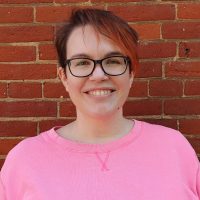
Dr Rowena Seabrook
University of Glasgow, UK
Dr Rowena Seabrook is Associate Lecturer at The Open University and Research Assistant at the University of Glasgow.
Her recent PhD research focused on using children’s literature for human rights education and involved researching with families in blended online and offline spaces.
Current projects include evaluating a nationwide programme of reading related activities for health and wellbeing as well as contributing to a publication on hope and children’s literature.
Ro also works for Tilt delivering training, coaching and support for purpose-led and non-profit organisations.
Dr Aliona Yarova
Independent Researcher, Finland.
Aliona is a researcher, higher education consultant and creative learning facilitator.
Prof. Petra Anders
Humboldt-Universität zu Berlin, Germany
Since 2018, I have been teaching didactics of the German primary classroom at the Institute for Education Sciences at HU.
My teaching and research is focused on becoming a good literary citizen. That involves media literacy, eg spoken word poetry, film didactics, reading and meme education as well as organizing literary events in the classroom.
2021, I was awarded the HU Prize for Good Teaching in recognition of my open access lecture on German didactics www.petra-anders.net
This year I received the Communicator Award from the German Research Foundation (DFG) and the Stifterverband for my science communication to promote reading and language skills at primary school level.
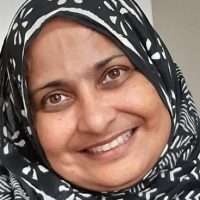
Aneesa Jamal
Universiti Teknologi Malaysia, Malaysia
Aneesa is a PhD student in Education at UTM, Malaysia.
She is also a CEE-Change Fellow 2023 with NAAEE, a Global Fellow at the Center for Climate Literacy, UNM & a member of the International Research Society for Children’s Literature.
Aneesa works with Indian children to amplify their storybooks on climate & environmental injustice. Her research has been on children’s counter-storytelling about environment & climate change and issues of injustice as a means for both learning about climate change and a form of climate action.
To this end she designed the children’s book authoring programs, through which Indian children interrogated urban issues, climate impact and climate (in)justice and authored storybooks.
